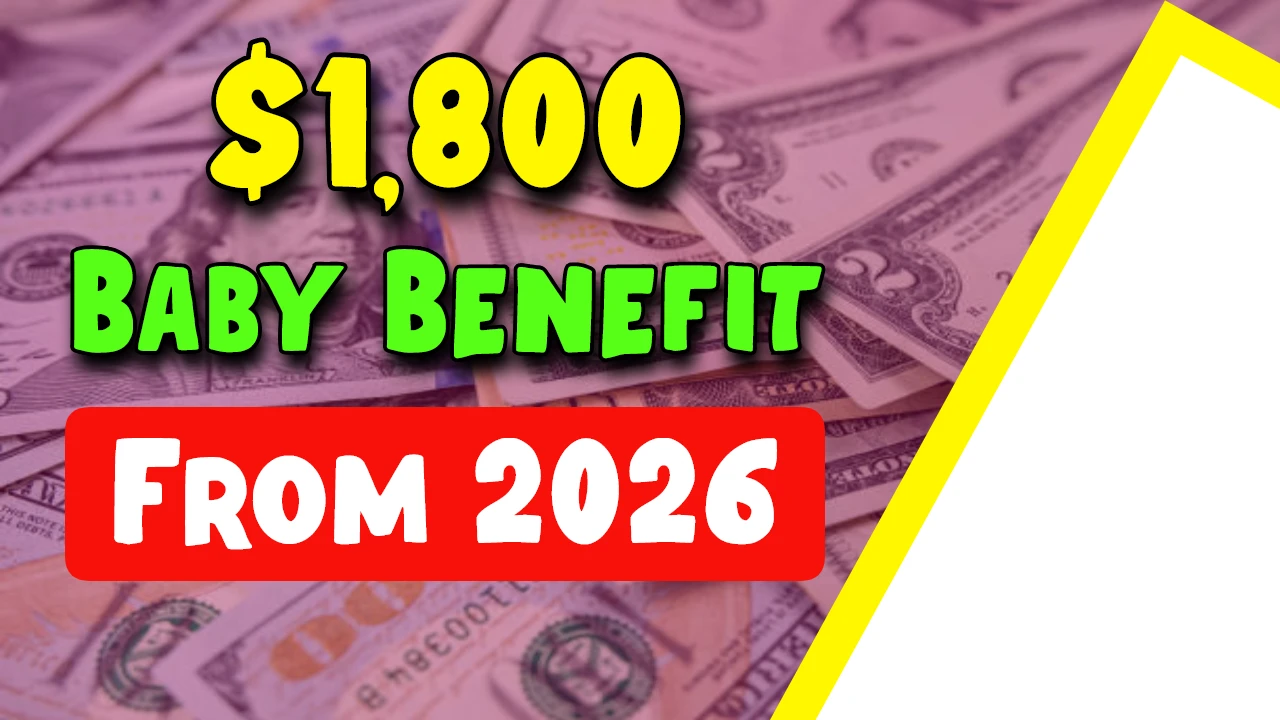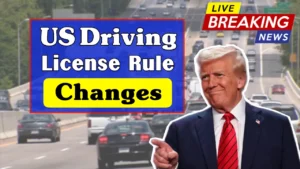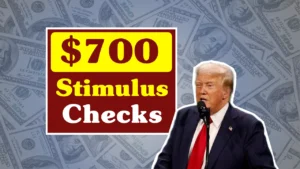A new benefit program will soon be available to help families with newborns in the United States, beginning in 2026. It’s called the $1,800 Baby Benefit, and it’s part of an effort by the government to offer families financial assistance in the early years of a child’s life. The cost of raising a baby is no small amount, and this benefit is designed to make the baby’s first year a bit easier for parents.
This new program will make a one-time payment of $1,800 to participating families for each baby. It is intended to help with basic costs, including baby supplies, food, health care, and other necessities. Inflation is ticking up, and many families are financially squeezed, so this will hopefully offer some relief to many millions of households. The reward will be administered by the government to the relevant departments from January 2026.
$1,800 Baby Benefit From 2026
When individuals have a baby, they frequently need to buy clothes, diapers, formula, cribs, strollers, and other baby things. Medical expenses for birthing and baby care can also add up. These initial costs can build up quickly, particularly for families with low incomes or single parents.
In making a flat payment of $1,800, the government is providing for families themselves more leeway to spend the money as they need it most. It could be spent on baby products, medical visits or to help cover rent and utilities while on maternity or paternity leave. The benefit isn’t tied to a specific use, so it could be used however people most need this financial assistance at this time.
$1,800 Baby Benefit From 2026 Overview
| Article On | $1,800 Baby Benefit From 2026 |
| Country | USA |
| Department | Internal Revenue Service (IRS) |
| Eligibility | Children must be born after January 1, 2026 |
| Amount | $1,800 |
| Payment Mode | Direct Deposits and Paper Checks |
| Payment Schedule | Monthly |
| Category | Government Aid |
| Official Website | Irs.gov |
Eligibility for $1,800 Baby Benefit
- Families must have a child born on or after January 1, 2026.
- At least one parent has to be a United States citizen or legal resident.
- The child must hold an SSN recently obtained shortly after birth.
- The family’s income should be below specific income limits established by the federal government.
- The benefit can be used by both single or married parents.
- Families need to file a federal tax return or be enrolled in federal aid programs.
- The birth must be reported to the appropriate state or local government.
- Those who are already getting other child-related benefits may still be eligible.
How be the Payment will Made
Most eligible families will not have to apply separately. If a family files taxes or receives other government benefits, such as SNAP, WIC, or Medicaid, the payment might be distributed automatically. Parents should ensure their baby’s birth is registered and should apply for a Social Security Number as soon as possible. This data will be used to link records and establish eligibility.
Payments are anticipated to be made as direct deposits into the parent’s bank account, like previous stimulus checks. There could also be an online available to monitor the payment’s status or to update information.
Effects on Families and Communities
This benefit will likely be a game-changer for many families. It offers crucial support during a time when families are getting used to living with a newborn. For low-income or cash-strapped parents, the payment could mean being able to afford basic needs or going without. This could also make for healthier and more developed babies in their first year of life.
Smaller businesses, like pharmacies, grocery stores, and baby product shops, could see a boost in spending. This wealth can also enhance emotional well-being, mental wellness, and quality of parenting by easing a family’s financial burden.
Baby Support Services in the future
The $1,800 baby benefit for families could just be the beginning when it comes to more narrow-cast family support down the road. If the program is successful, there could also be talk of increasing the amount or making the payments permanent. A few lawmakers have already expressed interest in expanding the benefit to include early childhood education or childcare. Others say this benefit could be matched with tax credits or other childcare subsidies.
Public input will also figure heavily into the future of this program. Should families report good results, and the process go smoothly, additional government assistance may be on the agenda. But if there are hitches and glitches in the program, then lessons will have to be applied to improve.
FAQs
Should I apply for the $1,800 baby benefit?
You will probably not be considered a separate applicant. If you have already filed your taxes and the baby is registered with a Social Security Number, the payment should be automatic.
When will the payments start?
The first payments are expected to start in early 2026 for babies born on or after January 1, 2026.
Can I get this payment if I already receive SNAP or WIC?
Yes, you are not disqualified if you receive other benefits. Being in these programs could help verify that you are eligible more quickly.
Does this assistance extend from year to year?
At the moment, it is a one-time payment for a child born in 2026 or beyond. The next phases are contingent on government budget and policy review.



